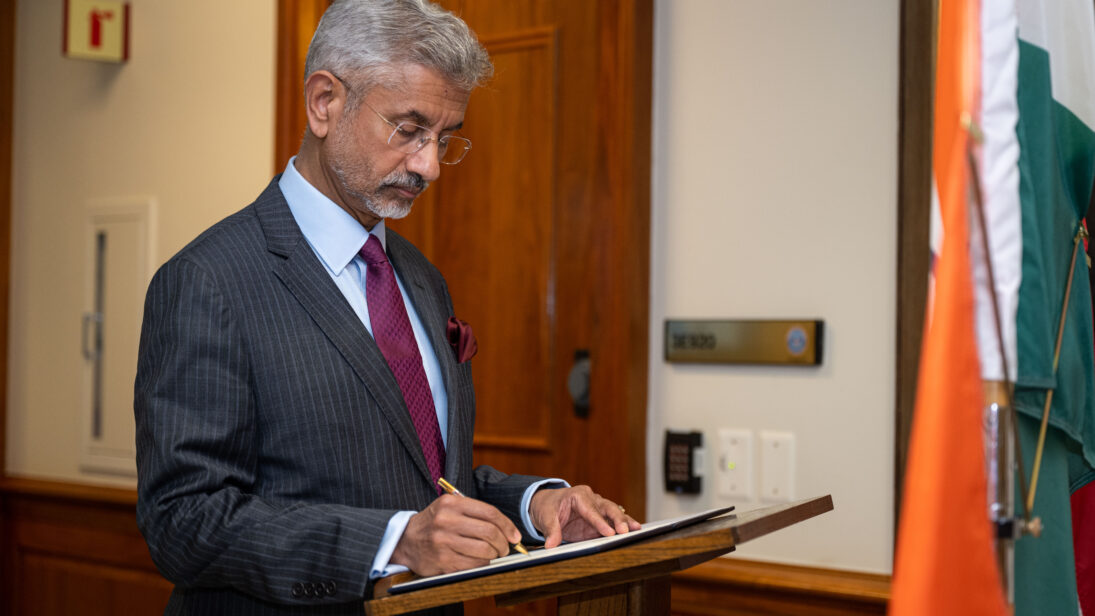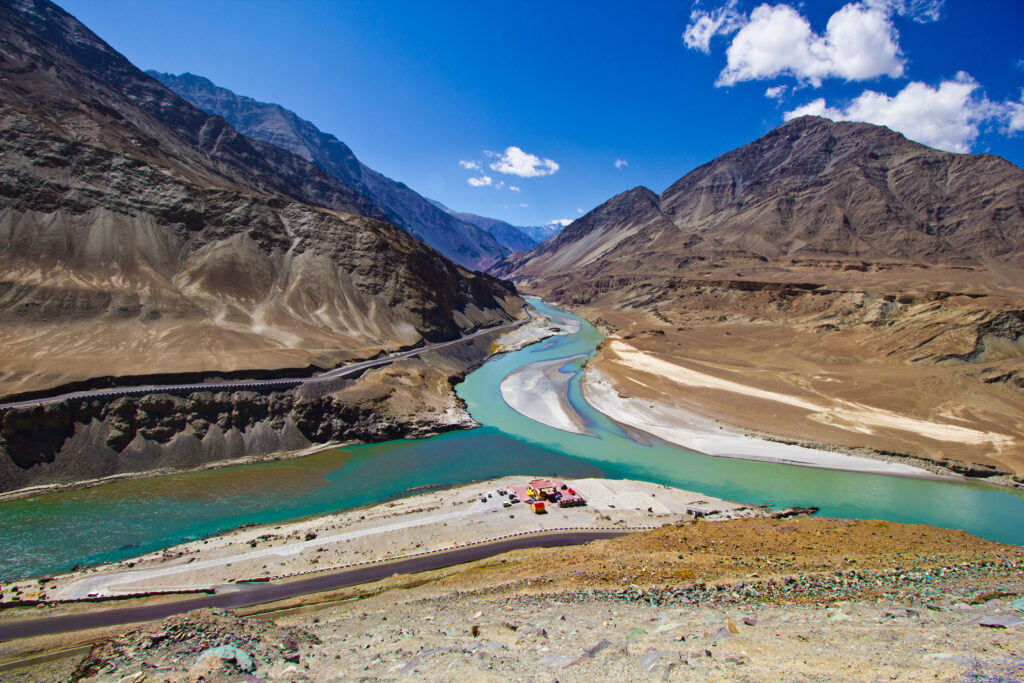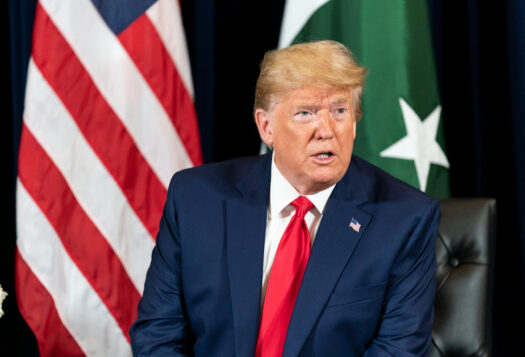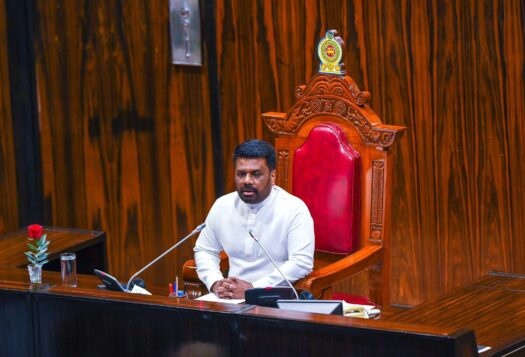
During a June 29, 2023, bilateral meeting with his Philippine counterpart, India’s External Affairs Minister Jaishankar called upon states to abide by the 2016 decision of the Permanent Court of Arbitration (PCA) in The Philippines vs. China. In this case, the Court inter alia declared China’s nine-dash line illegitimate under international law. Analysts writing on India suggest that taking a stand in 2016 was a necessary “step to lend its voice on a matter of principle critical to peace and stability in the region.” However, even as India strengthened its “principled” position in support of the PCA vis-à-vis the nine-dash line, New Delhi criticized the court the week after Pakistan presented proceedings concerning the Indus Water Treaty (IWT). In India’s dealing with the PCA, New Delhi appears to balance its sovereignty concerns in the Indo-Pacific with its strategic interest in gaining an advantage over Pakistan.
India’s Response to Pakistan’s IWT Filing
Just a week following Jaishankar’s statements in the Philippines, India categorized the ongoing Pakistan-initiated PCA proceedings pertaining to the Indus Waters Treaty (IWT) as “illegal,” adding that constituting the Court was in “contravention” of the IWT. The PCA rejected India’s objections in July 2023. While the India-Pakistan case requires the interpretation of a bilateral resource sharing agreement (IWT) which has two states and one international institution party to it, it shares key similarities with the Philippines-China decision relating to a multilateral convention (UNCLOS) that codifies long-standing principles of customary international law pertaining to the seas.
New Delhi likely made its statement on the 2016 China-Philippines ruling while anticipating an adverse PCA judgment on the Indus Water Treaty, pointing to New Delhi’s dual-hatted role in the international order.
How respondent states – China and India – have behaved stands out as a key similarity. In 2013-14, China boycotted all PCA proceedings, arguing that its participation would violate prior understandings with the Philippines to negotiate the issue through bilateral instruments. Currently, India is also boycotting all proceedings based on its “consistent and principled” stand against the court’s jurisdiction, arguing that another instrument — a Neutral Expert provided for in the IWT is already assessing the claim. Despite the PCA’s lack of enforcement mechanisms, the court’s decisions on admissibility in both cases are binding.
Contradictions for Sovereignty and International Law?
New Delhi likely made its statement on the 2016 China-Philippines ruling while anticipating an adverse PCA judgment on the Indus Water Treaty, pointing to New Delhi’s dual-hatted role in the international order. India has consistently upheld the general principles of international law, boasting a favorable history with international judicial bodies, especially the International Court of Justice. India participated in IWT-related arbitration at the PCA in 2013, notwithstanding the outcome being effectively in Pakistan’s favor. As India rises as an active participant in the international rules-based order rooted in international law, New Delhi has greater space to keep its specific disagreements largely siloed.
On the other hand, India has ignored the current PCA proceedings by seeking to re-negotiate key provisions of the IWT with Pakistan, even while attempting to invoke other binding PCA decisions with regard to China. India’s selective adherence to, and support of, the PCA indicates India’s confidence against being perceived as a disruptor in the rules-based order, despite contradictory stands on an international court. Unlike China, India has been largely spared of the need to convince other states of its ‘peaceful rise,’ and its disagreements with a PCA decision in a specific bilateral dispute does not trigger larger concerns of possible Indian misalignment with the liberal international order, especially in the Indo-Pacific. Voicing support for other judgments that counter Chinese claims allows New Delhi to further hedge against such perceptions.

Beyond the PCA
India’s selective adherence to legal principles underpinning the liberal international order is also evident elsewhere. The 2023 India-U.S. Joint Statement, following the Indian Prime Minister’s Washington visit, explicitly called for the maintenance of the freedom of navigation and overflight, and addressing challenges to the maritime rules-based order which explicitly included the South China Sea. Nonetheless, the United States and India themselves differ on the degree of freedom of navigation legally available to states, with significant implications for sovereignty in maritime law. For example, India has consistently objected to foreign military activity in its Exclusive Economic Zone without its prior consent. The U.S. Navy, in turn, has carried out multiple Freedom of Navigation Operations (FONOPs) in India’s EEZ especially since 2011, to challenge these “excessive maritime claims.”
However, other states have reflected such selective adherence too – India is not alone in interpreting UNCLOS Article 87 as allowing coastal states the right to demand permission from foreign naval vessels before operations in its EEZ. While the US Navy’s 7th Fleet conducted a FONOP in the Maldivian EEZ in 2021, the Department of Defense’s report for Fiscal Year 2022 shows operations conducted against Malaysia, Vietnam, as well as Taiwan, for the same interpretation as India’s. What was unprecedented in the case of India, was the real-time announcement of such a FONOP in India’s EEZ in April 2021. New Delhi protested this action through private diplomatic channels as drawing attention to a divergent opinion among key maritime security partners on the freedom of navigation, would have created an awkward environment for the Quad Summit in September 2021, which reaffirmed state freedoms of navigation and overflight.
India still grapples between assertion and restraint in the maritime domain, especially considering its aims to become a leading voice for the Global South.
Why does the Indian position stand out?
New Delhi’s position stands out principally due to its aims to emerge as a voice of the Global South. It advocates for the freedom of navigation in the same language as the United States but maintains specific reservations to such freedoms, similar to other regional states. This duality, however, is more prominent on New Delhi’s part as India still grapples between assertion and restraint in the maritime domain, especially considering its aims to become a leading voice for the Global South. For instance, Indian experts have consistently highlighted the confusion in New Delhi’s South China Sea policy and the evident hesitance – pushing its potent Navy progressively closer to the SCS, but staying clear of strategic maneuvers in disputed areas.
Arguably, New Delhi’s position adheres to long-held principles of strategic autonomy which shuns polarized positions and expands the room for choice. Its ability to present two contrasting positions on the PCA performs a similar function – to present Pakistan with alternative bilateral options while supporting the same mechanisms to further regional goals. In New Delhi’s eyes, the credibility garnered from the latter outdoes the criticism attracted due to the former. However, with the locus of geopolitical competition having moved closer to home in the Indo-Pacific, the degree to which India can retain the space for such dual positions remains an open question.
Also Read: India’s Ambitions in the Indian Ocean Region.
***
Image 1: Indian Minister of External Affairs Subrahmanyam Jaishankar via Wikimedia Commons.
Image 2: Confluence of Zansakr and Indus River via Wikimedia Commons.


